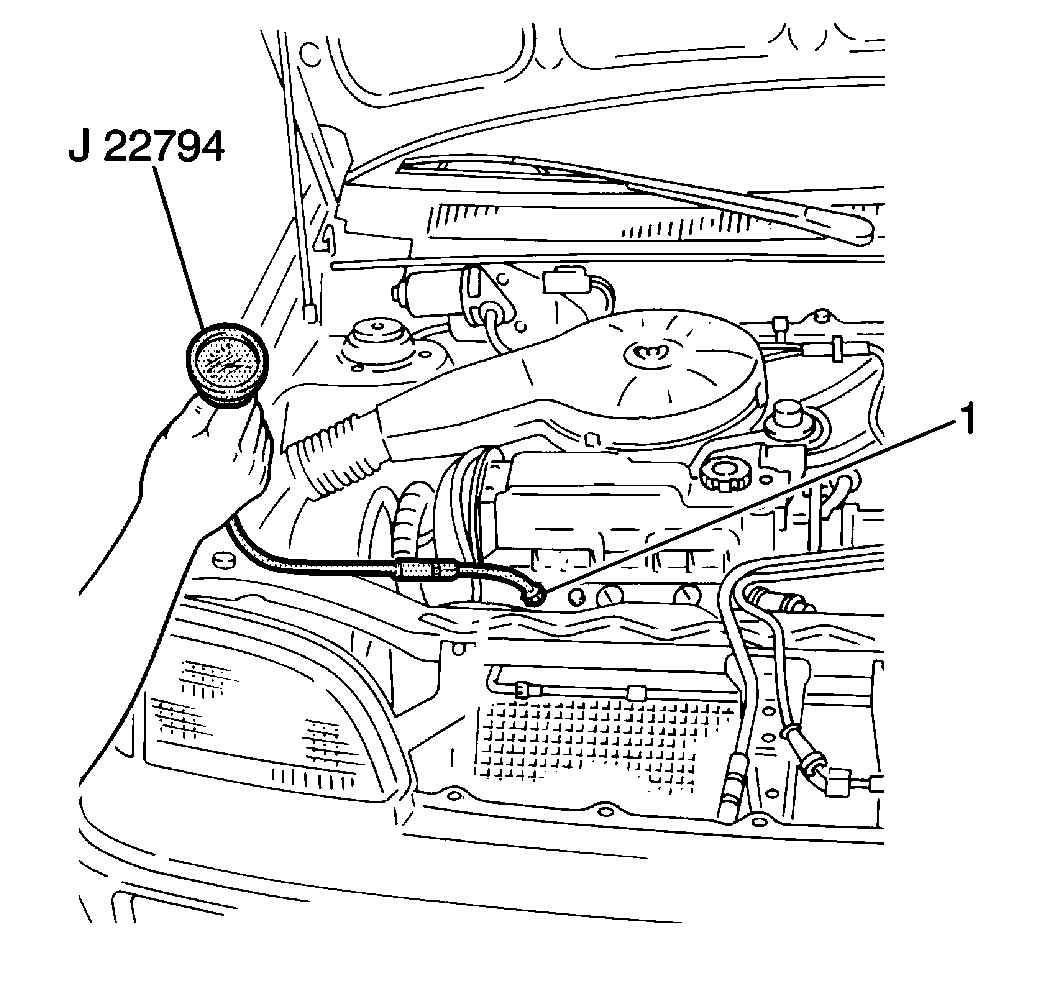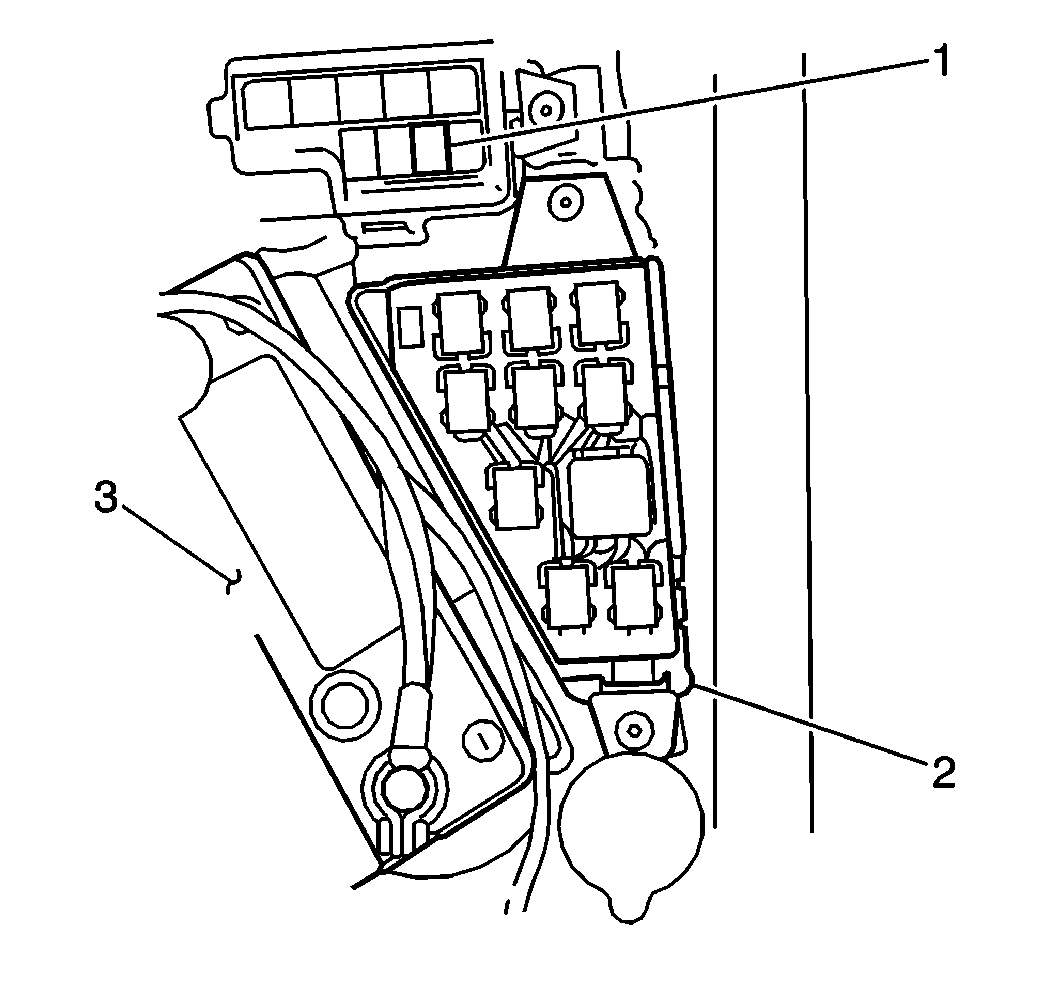In order to diagnose poor engine operation, perform a compression
test. A compression test will help determine valve, piston, or piston ring
failure. If checking the cylinder compression, the following conditions must
apply:
| • | The throttle must be wide-open. |
| • | All of the spark plugs must be removed. |
| • | The battery must be at full charge or near full charge. |
Test each cylinder four times.
Tool Required
J 22794 Spark Plug
Port Adapter

- Turn the ignition switch
to LOCK.
Important: Clean any debris from around the spark plug holes prior to removal of
the spark plugs.
- Remove all of the spark plugs, and disconnect the distributor electrical
connector. Refer to
Spark Plug Replacement
in Engine Electrical.
- Remove the FI fuse (1) from the fuse and relay box.

- Install a J 22794
and a compression gauge into a spark
plug hole (1).
- Disengage the clutch in order to lighten the starting load on
the engine. Depress the accelerator pedal to the wide-open throttle position.
- With the battery in the completely charged state, crank the engine
through four cycles, in order to take four pressure readings.
- Measure the highest pressure reading on the compression gauge.
| • | Standard compression pressure is 1 400 kPa (199 psi)
at 250 RPM. |
| • | Minimum allowable compression pressure is1 100 kPa
(156 psi) at 250 RPM. |
Important: The maximum allowable difference in compression pressure between any
two cylinders is 100 kPa (14.2 psi) at 250 RPM.
- Repeat the compression test procedures for the remaining cylinders.
- Remove the J 22794
and the compression gauge from the engine.
- Install all three spark plugs, and connect the distributor electrical
connector. Refer to
Spark Plug Replacement
in Engine Electrical.

- Install the FI fuse (1)
to the fuse and relay box (2).
- Evaluate the compression tests:
| • | During normal operation, cylinder pressure increases quickly and
evenly to the compression standard of 1 400 kPa (199 psi)
at 250 RPM.The pistons, piston rings, and the valves are operating
correctly. |
| • | The piston rings are faulty if the cylinder compression is low
on the first stroke and tends to increase on the following strokes.The compression
does not attain the standard. The addition of oil should improve the compression
pressure considerably. |
| • | The valves are faulty if the cylinder compression is low on the
first stroke and does not increase on following strokes. The addition of oil
does not significantly improve the compression pressure. |



